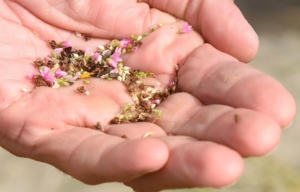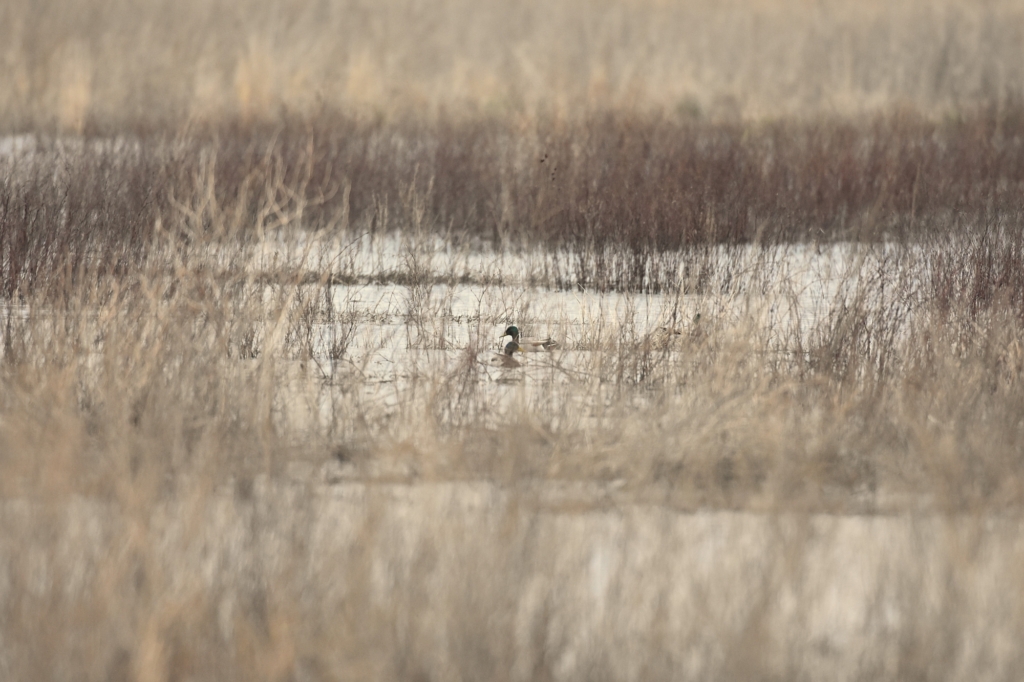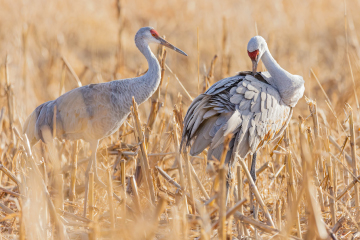 Atlanta and Johnson Waterfowl Production Areas (WPAs) are two of the largest wetlands in the Western Rainwater Basin. When flooded, both properties have received extensive use by Whooping Cranes, migrating waterfowl, and shorebirds. To improve the management capability for supplemental water deliveries, underground pipelines were installed at both properties this fall.
Atlanta and Johnson Waterfowl Production Areas (WPAs) are two of the largest wetlands in the Western Rainwater Basin. When flooded, both properties have received extensive use by Whooping Cranes, migrating waterfowl, and shorebirds. To improve the management capability for supplemental water deliveries, underground pipelines were installed at both properties this fall.
At Atlanta WPA, 2,000 ft. of 12-inch PVC pipeline was installed from a recently replaced high-capacity electric groundwater well to the edge of the wetland. The well connection to the pipeline was retrofitted to fill water tenders for prescribed fire or tanks to support livestock grazing.
This project is the culmination of nearly a decade of habitat enhancements at Atlanta WPA. Work started in 2015 with on-site restoration activities that included removing 5,000 feet of earthen dike in the wetland footprint, filling four concentration pits, excavating accumulated sediment, and removing terraces in the uplands that were impeding water from reaching the wetland. To date, 22 irrigation reuse pits have been filled in the watershed. The hydrology has also been restored on the privately owned portion of the WPA and was one of the first private lands restorations where the producer retained the right to crop the site if conditions allowed. The pivot irrigation system on this tract was retrofitted with flotation tires to ensure the pivot could cross the filled pit and a portion of the WPA without negatively impacting the habitat or hydrology.
At Johnson WPA, 1,000 ft. of 24-inch PVC pipeline will be installed off a Central Nebraska Public Power and Irrigation District (CNPPID) canal system. This pipeline allows Johnson WPA to be filled in a seven-day period with excess flows from the Platte River. Based on monitoring by Tri-Basin Natural Resources District, the 200 acres of wetland at Johnson WPA flooded through surface water deliveries will recharge an estimated 288 million gallons annually if ponding were to occur over 45 days. Additionally, the supplemental water deliveries will have low nitrate concentrations (<.35 Parts Per Million – PPM), which will help dilute nitrogen concentrations and improve groundwater quality towards the <10 PPM safe drinking water standard.

In addition to the water quality benefits, waterfowl and other wetland dependent migratory birds have positively responded to supplemental water deliveries. For example, during the 2023 spring migration season 45 whooping cranes (over 10% of the migratory population) used wetlands flooded through supplemental deliveries. This project will ensure managers have the necessary tools to provide habitat for Whooping Cranes and the millions of waterfowl that depend on the Rainwater Basin.
The positive benefits of this project were highlighted in several local newspapers and Natural Resource District newsletters to help residents connect with wetlands in their backyard. Full Story.



